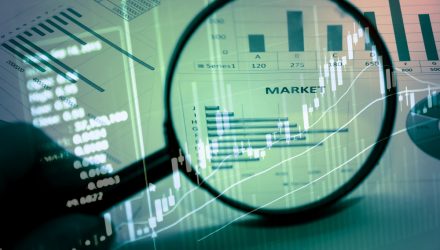A new report by RBC Global Asset Management has found that the COVID-19 pandemic has investors more committed to the space and wanting more investing options. The survey included 800 participants globally, with roughly 45% representing businesses with $1 billion or more in assets, and 17% of those that responded worked for organizations with 10,000 or more employees. The report found that 72% of investors use ESG principles in their approach to investing and 83% of investors believe that portfolios that contain ESG investments will do just as well as, if not better than, non-ESG portfolios. Within the U.S., which currently has no federal or regulatory standards for ESG metrics and reporting, 77% of investors reported that they believed ESG-exposed portfolios perform equal to or better than their non-ESG counterparts. Equities continued to lead the charge for the most invested-in asset class using ESG factors; globally, 82% of investors utilize an ESG approach within equities. In the U.S., that number was at 79%. Fixed income products were the next highest at 60% with demand increasing for more products. Image source: RBC’ s ESG in a Pandemic World Of all of the investors that were surveyed, 41% believed that more fixed income options that incorporate ESG are needed. This is a significant number and reflects the increased interest by investors of all types within ESG investing. “In a year where ESG risks such as COVID-19, high profile cyber breaches and climate-driven weather events dominated headlines, it will be interesting to see how perceptions toward ESG will continue to evolve,’ said Melanie Adams, vice president and head of corporate governance and responsible investment at RBC Global Management in a press release.
SPDR Offers ESG Bond Investment SSGA currently offers a fixed income ETF with an ESG lens, the SPDR Bloomberg SASB Corporate Bond ESG Select ETF (RBND) . The fund tracks the Bloomberg SASB U.S. Corporate Ex-Controversies Select Index and provides a sampling strategy to generally carry the same risk and returns of the index. The index measures the performance of investment-grade corporate bonds issued by companies with certain ESG qualities that also have risk and return qualities of the parent index, the Bloomberg U.S. Corporate Index. The parent index has public-issued, fixed-rate, taxable, U.S. dollar-denominated corporate bonds. These bonds are issued by U.S. and non-U.S. industrial, utility, and financial institutions with a maturity of a year or greater and with $300 million or more of par amount outstanding. The index uses a Responsibility (R-Factor) developed by SSGA to score companies in the parent index for ESG criteria. The R-Factor takes into account ESG and corporate governance factors when scoring companies. It excludes companies that derive significant revenue from any of the following: extreme event controversies, controversial weapons, UN Global Compact Violations, civilian firearms, thermal coal extraction, and tobacco. Companies that do not have an R-Factor in the parent index are also removed. The securities within the index are weighted to maximize the R-Factor of the index while also minimizing total risk compared to the parent index. RBND can be used as a core building block for ESG investing and carries an expense ratio of 0.12%. For more news, information, and strategy, visit the ESG Channel.
FONTE: www.etftrends.com

